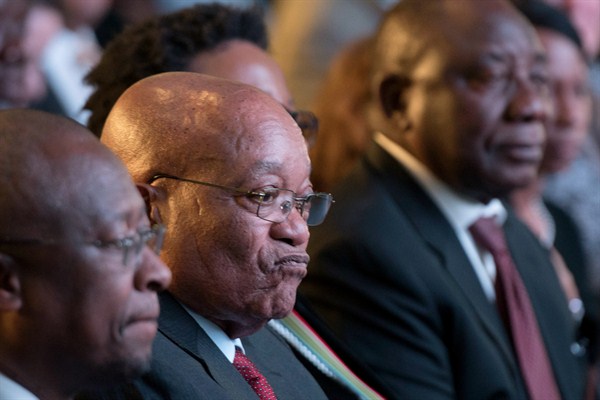South Africa’s local government elections on Aug. 3 delivered the strongest rebuke to the ruling African National Congress (ANC) in its 22 years in power, raising important questions about its longevity as a dominant party. The ANC’s ability to routinely secure more than 60 percent of the vote in elections since 1994 had given it an aura of invincibility that overawed its opponents. Although the opposition was able to establish some provincial and local enclaves around the country, it could not pose a credible threat to the ANC’s national dominance.
Last week’s municipal elections punctured that aura. For the first time, the ANC seems like a more mortal and vulnerable party. It fell significantly below the 60 percent threshold, with a final vote share of 53.9 percent, its lowest since South Africa became a democracy in 1994. The opposition Democratic Alliance (DA) got 26.9 percent of the vote—up from 23.9 percent in the last local elections five years ago—while the upstart Economic Freedom Fighters got 8.2 percent.
The ANC lost control of Nelson Mandela Bay, an iconic center of anti-apartheid resistance, to the DA, which also outpolled the ANC in Pretoria, the capital. Although it remained the largest single party in Johannesburg and Ekurhuleni, the ANC lost overall control in both cities and may be kept out of power there by opposition coalitions. In Cape Town and the Western Cape in general, the DA trounced the ANC; only KwaZulu-Natal, President Jacob Zuma’s home province, recorded a modest increase in ANC support. Of the eight big metropolitan areas—South Africa’s economic powerhouses—the ANC now enjoys outright control in only three. A chastened ANC has now promised a long period of introspection, but it is questionable whether it is equipped to confront the source of its problems, both in the short and long term.

